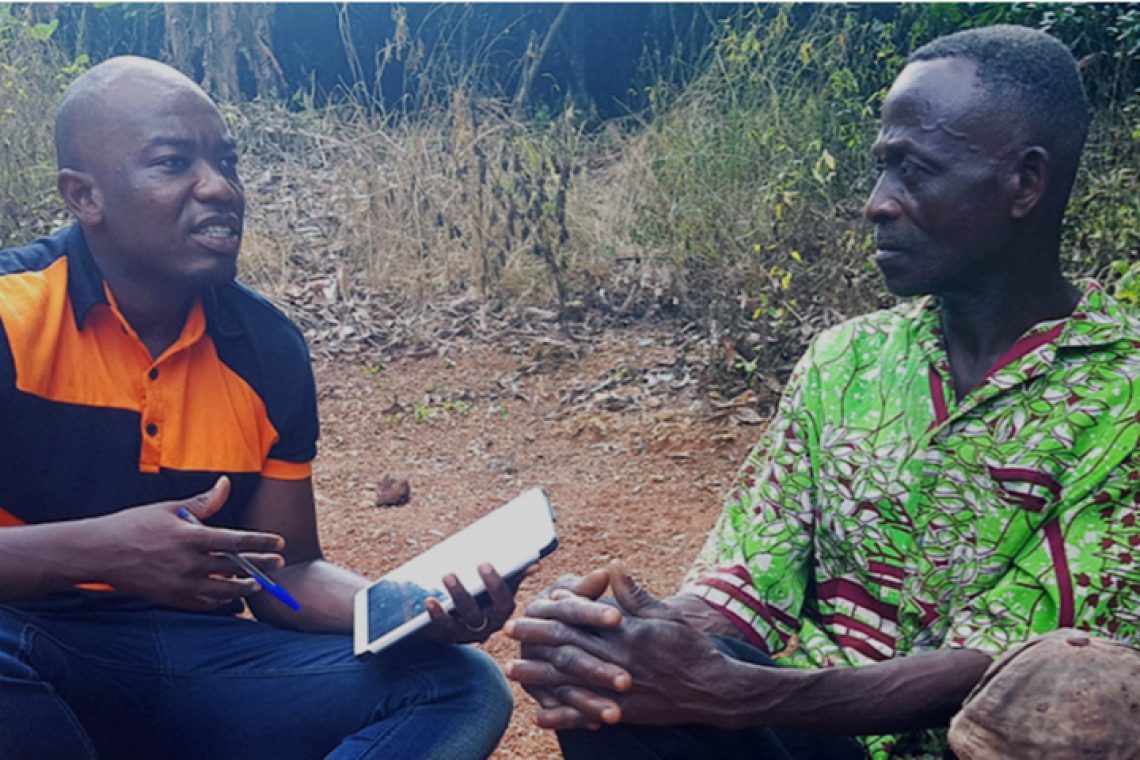Make your 2X MATCHED gift today!
This week only: Every $1 will be matched with $2 to enable women worldwide.
This week only: Every $1 will be matched with $2 to enable women worldwide.
Posted on 10/02/2018

How much is your personal data worth? It depends on whom you ask. Last year, advertisers paid Facebook $40 billion to promote their products to us using that very data. And just last month, the company’s stock plunged almost 19 percent, in part, because of how Facebook protects the privacy of that data.
Concerns related to data and privacy are very real and extend well beyond Facebook’s users. They are perhaps even more crucial to the 1.2 billion women in low-and middle-income countries who do not use mobile internet. Our ability to slice and dice data is nothing new. But the sheer volume of digital data and the relative ease of crunching the numbers have now made our social media habits, purchases and other behavior a powerful commodity. Used for good, our personal data helps ensure we get the best services for our needs. But it can just as easily be manipulated to benefit others above us—a threat the European Union’s General Data Protection Regulation (GDPR) aims to thwart.
Digital data can be just as transformational for the poorest among us. We are excited by the opportunities, but equally aware of the risks. As the reach and impact of big data and digital technology grow, the global community must collaborate with our partners in developing countries to ensure that poor families can protect their interests and benefit from new innovations as empowered “data citizens.”
Millions of terabytes of information are already being collected from small-scale farmers, microentrepreneurs and other low-income families around the world. This data allows organizations to improve the services they provide to these communities and also helps them make more informed strategic decisions. For example, in industries that rely on small family farms for raw material, like coffee and cocoa, data on the output of those farms is essential to the entire chain of production. Mobile money operators track the volume and types of transactions made in low-income communities to create new financial products. Governments identify and send payments directly to low-income beneficiaries, ensuring more people receive their benefits efficiently.
The untapped benefits are immense. Just as our Facebook profile is used to serve up ads for our favorite items, these massive troves of data could be used to offer new opportunities to poor families, if harnessed correctly.
Take, for example, digital farmer profiles. They provide a comprehensive picture of farmers and their farms using data from farmers and the ecosystem of suppliers and producers that surrounds them. Government agencies, suppliers and farmer cooperatives are increasingly using the information to provide more targeted agricultural and business training. Lenders are slowly turning to farmer profiles as a key source of information in extending much-needed loans to upgrade farms. In our own work, Grameen Foundation uses data to help create farm development plans that enable farmers to maximize the output of their land using sustainable agricultural intensification techniques.
But the rich opportunities provided by such abundant data must be tempered by the potential pitfalls. Poor families typically do not have the resources or power to verify or protect their data, nor can they challenge inaccurate or incomplete information. Even if they learn their information has been misused or compromised, they simply cannot switch to another provider. And they have few ways, if any, to harness and leverage the power of their own data.
There are several key steps the global community can take to address these concerns:
Strengthen privacy protections: As more organizations that serve underserved communities “go digital,” there must be greater oversight and vigilance over the personal information they collect. Special efforts are needed to maximize the security of new applications and to ensure users understand risks and how to guard against them. Blockchain technology, with its underlying distributed ledgers, offers a potential solution as it enables the farmer to control his or her permanent digital identity and data and who has access to it.
Empower ongoing control over data: Equally important, there must be policy frameworks and mechanisms to allow even the poorest individual to protect and challenge discrepancies in their data. Some are already taking steps in that direction. For example, the Partnership for Responsible Financial Inclusion has developed a model legal framework for financial consumer protection that includes country-level benchmarking and codes of conduct covering issues such as data protection, transparency, and complaint resolution. More than 270 regulators, bank supervisors and other key stakeholders in seven countries have already been trained on the tool. Individual countries can also look to the European Union’s new GDPR rules as a new gold standard for determining data access, transparency and disclosure.
Promote interoperable systems: The early success of mobile money in emerging economies was led by mobile operators that funneled users’ transactions through proprietary channels, building robust payment systems that have transformed communities. But today, these walled-off systems cost users time and money and make it difficult for them to manage their data and access their credit histories across multiple sources.
With interoperable systems, a farmer or market vendor could use any mobile network operator to conduct any type of transaction with any financial institution. Interoperability can also allow him/her to access and leverage their financial history from different institutions, and more easily track their data footprint from a single source.
Digital data is a powerful commodity, driving change across the economy. We must ensure that it is used in ways that also benefit the poorest, protect their rights to privacy, and open new doors of opportunity.
Steve Hollingworth is president and CEO of the Grameen Foundation. Follow him on Twitter @SHollingworthGF